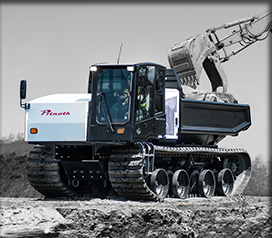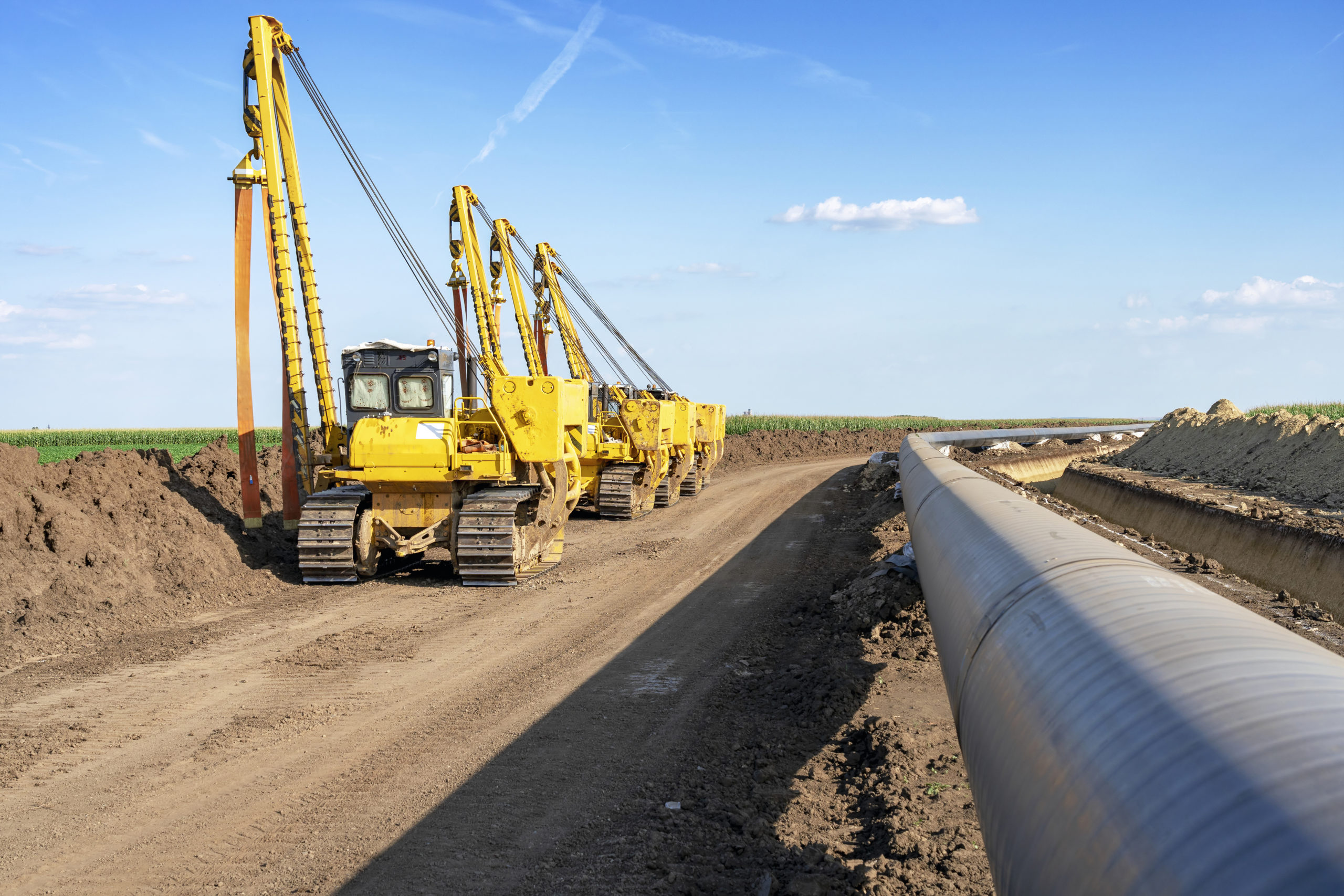A Comprehensive Guide to the Numerous Kinds of Oil Field Equipment and Pipeline Equipment Available
The oil and gas sector depends heavily on customized devices for effective extraction and transportation. Various types of machinery, from piercing rigs to storage space containers, play essential roles in this complex procedure. Each piece of devices offers unique features that add to general operational success. Recognizing these parts is crucial for any person included in the field. As the market progresses, so also do the technologies that sustain it. What improvements are on the perspective?

Drilling Rigs: The Foundation of Oil Exploration
Drilling rigs serve as the vital machinery in the domain name of oil exploration, allowing firms to access hydrocarbon books hidden deep under the Planet's surface area. These rigs can be found in different types, consisting of land rigs, offshore rigs, and mobile devices, each developed to operate in certain environments. Outfitted with advanced modern technology, piercing rigs can permeate geological developments with accuracy, making sure efficient resource extraction. The architectural integrity and functional abilities of these rigs are essential, as they must stand up to extreme problems and significant pressures. Moreover, the selection of a drilling rig influences the general project expense and timeline, making it a vital factor to consider for oil companies looking for to maximize their exploration initiatives and take full advantage of performance in their procedures.
Pumps: Important for Liquid Movement
In the oil removal procedure, the role of pumps is substantial, assisting in the movement of liquids throughout numerous phases of production. Pumps are crucial for carrying unrefined oil, water, and various other liquids from below ground tanks to the surface area and after that through pipes to refineries. They can be found in different types, including centrifugal, favorable displacement, and submersible pumps, each offering certain functions based upon the liquid qualities and functional demands. Centrifugal pumps are frequently made use of for their efficiency in high-flow applications, while positive variation pumps stand out in handling viscous liquids. The selection of pump influences total performance, operational security, and upkeep prices. Correct option and upkeep of pumps are crucial for optimizing production and lessening downtime in oil area operations.
Valves: Controlling Circulation and Pressure

Shutoffs play an essential role in taking care of the flow and stress of liquids within oil areas and pipes. Numerous sorts of shutoffs offer distinctive applications, each designed to fulfill certain features basic for reliable operation - Superior Oilfield Rentals oilfield. Understanding the qualities and usages of these shutoffs is necessary for maximizing system efficiency and safety
Kinds of Valves
Essential elements in oil field operations, shutoffs play a crucial duty in controlling the circulation and stress of liquids within pipes and tools. Different kinds of valves are made use of to meet the diverse needs of oil and gas production. Usual types consist of gateway valves, which give a straight-line circulation and marginal pressure drop; globe valves, understood for their throttling capabilities; and sphere shutoffs, recognized for their fast on/off control. In addition, check valves prevent heartburn, while butterfly shutoffs offer a light-weight remedy for regulating flow. Each valve kind is created with certain materials and setups to withstand the extreme conditions often discovered in oil areas, ensuring reliability and performance in operations. Comprehending these types is vital for reliable system administration.
Valve Applications and Features
While different sorts of valves offer distinctive purposes, their key applications rotate around controlling flow and pressure within oil and gas systems. Shutoffs such as entrance, globe, and sphere shutoffs regulate fluid movement, ensuring peak performance and safety and security. Gateway valves are generally utilized for on/off control, giving minimal flow resistance. World shutoffs, on the other hand, deal accurate circulation law, making them ideal for throttling applications. Ball valves are favored for their fast procedure and tight sealing capacities. On top of that, stress relief shutoffs are critical for stopping system overpressure, protecting tools honesty. Generally, the appropriate option and application of valves enhance functional effectiveness, making certain the reputable transportation of oil and gas through pipes and handling facilities.
Compressors: Enhancing Gas Transport
Compressors play a vital role in the efficient transport of gas, making certain that it moves smoothly through pipelines over long ranges. These tools raise the stress of all-natural gas, allowing it to get over friction and altitude changes within the pipeline system. Additionally, compressors promote the balancing of supply and demand, fitting fluctuations in intake and production prices. Different sorts of compressors are used in the industry, consisting of centrifugal, reciprocating, and rotating screw compressors, each offering unique advantages based on the operational needs. Routine upkeep of these compressors is important to take full advantage of efficiency and decrease downtime, eventually adding to a dependable gas transport network. Their crucial function underscores the value of compressors in the total oil and gas facilities.
Storage Tanks: Safe and Reliable Liquid Monitoring
Effective transportation of natural gas counts on numerous support group, one of which is the appropriate monitoring of tank. These containers play an important duty in securely containing liquids, ensuring that functional effectiveness is maintained while lessening ecological threats. Created from resilient materials, visit their website they are created to hold up against high stress and destructive components. Appropriately sized and strategically situated, storage tanks help with the smooth flow of all-natural gas and other liquids, protecting against traffic jams in supply chains. Routine maintenance and monitoring are important to discover leaks or structural concerns, promoting safety and compliance with governing standards. Inevitably, the reliable administration of tank is critical for the overall honesty and dependability of the oil and gas industry's liquid handling systems.
Pipeline Equipments: Framework for Transportation
Pipeline systems serve as the backbone of the oil and gas sector, assisting in the effective transportation of hydrocarbons over large distances. These systems include various parts, residential sewer line repair consisting of pipes, shutoffs, pumps, and compressors, all meticulously created to assure seamless flow. The materials utilized in pipeline building and construction, commonly steel or high-density polyethylene, are selected for resilience and resistance to rust. Pipeline networks can extend throughout land and water, connecting manufacturing sites to refineries and distribution. Furthermore, advanced modern technology enables real-time tracking of flow rates and pressure levels, enhancing operational efficiency. The tactical placement of these pipes decreases ecological impact while making the most of resource access, thereby playing a crucial role in meeting power demands around the world.
Safety Equipment: Making Certain Worker and Environmental Defense
The operation of pipeline systems, while crucial for energy transportation, additionally offers substantial security obstacles for employees and the environment. Security devices plays a substantial role in mitigating these dangers. Personal protective equipment (PPE) such as safety helmets, handwear covers, and non-slip shoes safeguards workers from physical hazards. Furthermore, gas discovery systems keep track of for leaks, ensuring that hazardous materials do not pose a hazard to personnel or the surrounding ecological community. Emergency shutdown systems are crucial for quickly halting operations throughout a dilemma, preventing prospective catastrophes. Spill control materials, including absorbents and obstacles, are essential for reducing environmental effect. Generally, buying all-inclusive safety and security devices is essential for preserving functional stability and shielding both workers and the setting in the oil and gas anchor industry.

Regularly Asked Questions
Exactly how Do I Select the Right Oil Field Equipment for My Project?
Selecting the best oil area tools includes evaluating project specs, budget plan constraints, and functional demands. Take into consideration elements such as tools integrity, compatibility with existing systems, and the supplier's credibility to guarantee peak efficiency and security.
What Are the Maintenance Requirements for Oil Field Equipment?
Maintenance requirements for oil area tools consist of normal examinations, lubrication, and prompt repair services. Operators ought to additionally abide by maker guidelines, screen efficiency metrics, and guarantee compliance with safety and security laws to improve durability and effectiveness.

Exactly How Can I Make Sure Compliance With Environmental Regulations?
To assure compliance with environmental laws, business need to conduct normal audits, execute ideal methods, spend in training, keep correct paperwork, and stay upgraded on regulations (Superior Oilfield Rentals). Cooperation with environmental agencies can additionally improve adherence to laws
What Is the Ordinary Life-span of Pipeline Equipment?
The ordinary life expectancy of pipeline devices commonly ranges from 20 to half a century, depending upon variables such as worldly top quality, ecological problems, and upkeep methods. Routine examinations can substantially influence durability and functional performance.
Just how Do I Safely Deliver Oil Field Equipment to Remote Locations?
Transporting oil area equipment to remote locations needs cautious preparation, consisting of route assessment, protecting authorizations, making use of proper lorries, and guaranteeing security protocols are adhered to. Proper training and interaction amongst staffs are necessary for effective transport.